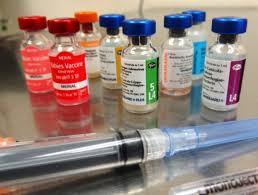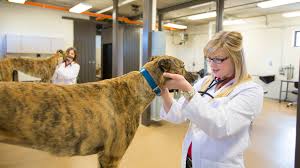 Every conscientious pet owner should make themselves aware of the current thinking regarding medication for them. There are developments happening all the time, for example the new research on the health benefits of frankincense oil for dogs, which helps to boost their immune system, improve their mood and help them to manage pain. One of the most important medications for pet owners to consider is vaccines. For some time now it has been felt by authorities in this field that we are giving our pets too many vaccines too often. Research is revealing that the immunization effectiveness of most vaccines lasts far longer than was ever believed. And some vaccines are either worthless, are given to protect from some disease that isn’t serious enough to even warrant a vaccine, or should be given only if certain lifestyle conditions exist. Unfortunately, there are vets who are unaware of the latest trends or are unwilling to give up those old time “annual” requirements.
Every conscientious pet owner should make themselves aware of the current thinking regarding medication for them. There are developments happening all the time, for example the new research on the health benefits of frankincense oil for dogs, which helps to boost their immune system, improve their mood and help them to manage pain. One of the most important medications for pet owners to consider is vaccines. For some time now it has been felt by authorities in this field that we are giving our pets too many vaccines too often. Research is revealing that the immunization effectiveness of most vaccines lasts far longer than was ever believed. And some vaccines are either worthless, are given to protect from some disease that isn’t serious enough to even warrant a vaccine, or should be given only if certain lifestyle conditions exist. Unfortunately, there are vets who are unaware of the latest trends or are unwilling to give up those old time “annual” requirements.
Here are some links to the current recommended protocols for immunization as issued by the American Animal Hospital Association (AAHA) and adopted by the top veterinary teaching schools:
- http://healthypets.mercola.com/sites/healthypets/archive/2011/10/27/new-canine-vaccination-guidelines.aspx
- http://www.peteducation.com/article.cfm?c=2+2115&aid=950
- https://www.aaha.org/professional/resources/canine_vaccine.aspx#gsc.tab=0
- http://www.vetmed.ucdavis.edu/vmth/small_animal/internal_medicine/newsletters/vaccination_protocols.cfm
 The vaccines on an AAGA Greyhound are up to date as of the adoption date. If they were NOT current when the dog arrived here in Atlanta, boosters are given at the time of his spay-neuter/heartworm test/health check visit by our vet. If the shots from the track ARE still current, we do NOT repeat them just for the convenience of the potential adopter! We elect instead to follow a “what’s best for the dog” policy and give no unnecessary vaccines.
The vaccines on an AAGA Greyhound are up to date as of the adoption date. If they were NOT current when the dog arrived here in Atlanta, boosters are given at the time of his spay-neuter/heartworm test/health check visit by our vet. If the shots from the track ARE still current, we do NOT repeat them just for the convenience of the potential adopter! We elect instead to follow a “what’s best for the dog” policy and give no unnecessary vaccines.
Following adoption, we recommend the following “core” vaccines:
- A 3-year rabies shot one year following the last rabies shot, except where the previous one was already a 3-year shot. Rabies shots should then be given at 3-year intervals thereafter. (That much rabies vaccine is probably not necessary, but it’s the law!)
- A 1-year DHPP shot one year following the last DHPP shot. If the vaccine is manufactured by Pfizer (as used by our vet), then this new inoculation may now be considered good for 3 years. (For vaccines produced by other companies, you will have to confirm efficacy with your vet.) NOTE: If the most recent DHPP shot was given by our vet, we will indicate on the adoption records if it is to be considered as lasting 3 years.
- Bordetella vaccine, intranasally or orally, once a year. (Even this vaccine is in question, as there are many forms of kennel cough, and the Bordetella vaccine only protects against a couple of them. Besides, kennel cough is generally not life-threatening in an otherwise healthy dog; it’s comparable to the common cold in humans. Nevertheless, some boarding facilities require it prior to admittance.)
All other vaccines are considered “non core” and should be administered only if special conditions are present (e.g., certain areas of the country, particular dog occupations, exposure to special health hazards, etc). You will have to discuss with your vet which he/she recommends and then weigh the pros against the potential health risks.
One of the newest ideas in immunology is titering. Before given any vaccine, the dog is tested to see if he still has immunity. If he does, no vaccine is given. Unfortunately, at this time, titering is still relatively expensive (maybe $50 to $200). So, dog owners elect to just give the shot rather than first pay for the test AND then for the shot anyway if it is determined to be needed. Hopefully, quick and inexpensive titering tests will be available in the not-too-distant future.
